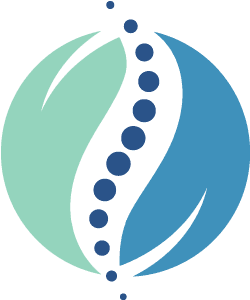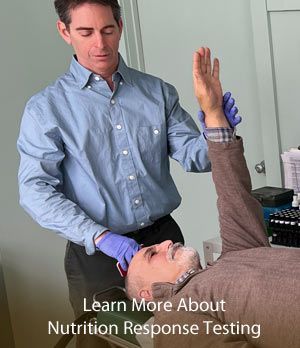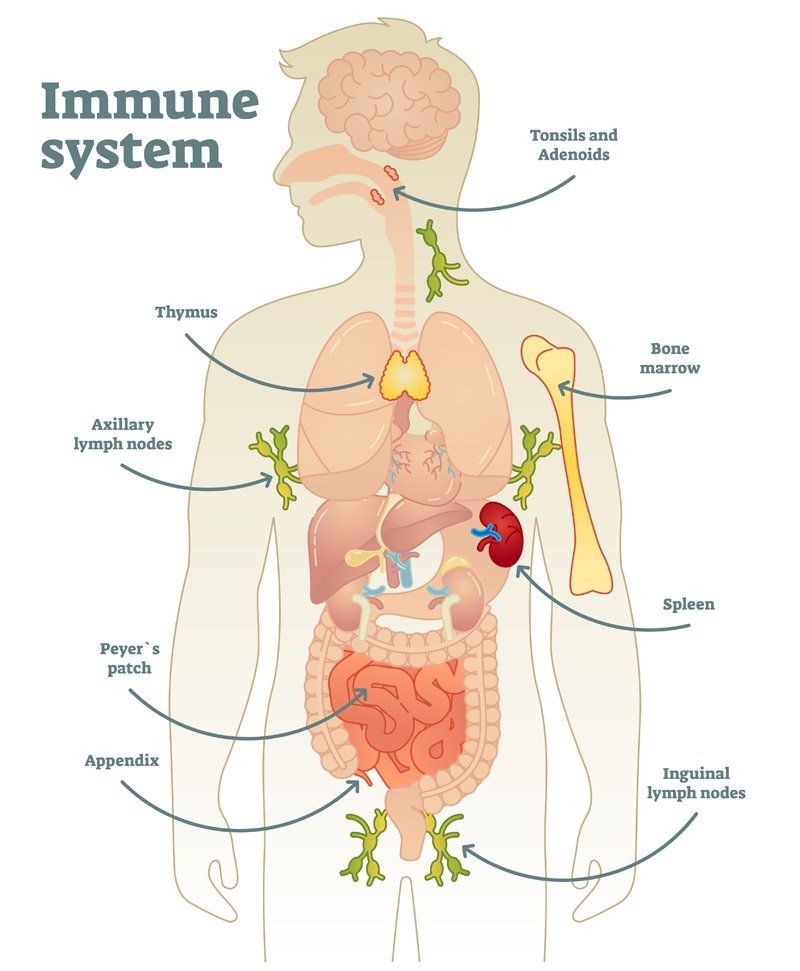Immune Support - Dr. Louis Granirer Holistic Chiropractor
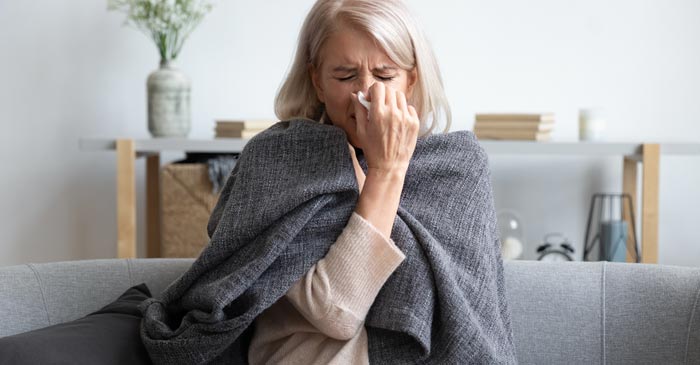
"There is a new and greater awareness of the importance of optimizing immune health. Numerous factors, including genetics, environment, stress levels, and nutrition, influence the strength and preparedness of everyone’s immune system.
Muscle testing can determine personalized immune support and give the body a better chance of overcoming future viruses, microbial assaults, and infections."
-Dr. Louis Granirer
NY Chiropractor
Personalized Holistic Care for Improving Immune Health for Patients in Kingston, Ulster County NY 12401
Contact Dr. Louis Granirer
NY Chiropractor and Leading
Nutrition Response Testing Practitioner
For a Free Consultation
Our Immune system is essential in keeping us healthy. It defends and protects us from many pathogens, like viruses, bacteria, and parasites, that we come into contact with on a daily basis. The key to the immune response is the ability to recognize the good guys from the bad and to prevent the bad guys from replicating and infecting our cells.
The Immune system consists of the innate immune system and the adaptive immune system. The innate immune system contains phagocytosis inducing mechanisms. This involves engulfing or eating pathogens to destroy them. These include, but are not limited to, phagocytes, natural killer cells, macrophages, dendritic cells, basophils, eosinophils, and neutrophils. The recognition of self vs. non-self is fundamental for the innate immune system and doesn’t lead to long term immunity.
The adaptive immune response’s key feature is memory. It recognizes antigens that it has come across from the past and can activate a quick response once this has developed. It takes about 5 to 7 days for the adaptive immune response to produce factors that will destroy or eliminate a pathogen, and this is why the common cold can take that long or longer to resolve. The cells of the adaptive immune system are a special type of leukocyte called lymphocytes. These lymphocytes are called B cells and T cells. B lymphocytes are made in the bone marrow. T lymphocytes are produced in the thymus gland. The two major sub-types of T cells are the T helper cells and T killer cells. The TH1 cells of the T helper lineage work intracellularly on pathogens like viruses and bacteria. TH2 cells work extracellularly on parasites and allergens, like foods.
Immune System Health
Antibodies, or Immunoglobulins, are an important factor in the adaptive immune response. They are produced from B plasma cells from the bone marrow. Different classes of antibodies serve different tasks in the immune response. Immunoglobulins, or antibody levels, are used in blood work to determine whether a patient is having an allergic response or dealing with an infection.
IgA is found in mucous secretions, the gut, the urogenital tract, saliva, breast milk, and tears. This is one of the first lines of defense. IgA offers protection against parasites. IgD activates mast cells and basophils and is mostly on B cells to identify antigens.
IgE has a half-life of two to seven days and binds to allergens, which can trigger a histamine reaction. IgE also protects from parasites. IGg is the majority of antibody-based immunity against invading pathogens and invokes passive immunity. This is the only antibody that can cross the placenta and give passive immunity to the fetus. IgM is on the B cell and is part of the initial antibody response before significant amounts of IgG are present.
Specifically, the immune system consists of primary organs and tissues. These are the spleen, thymus gland, bone marrow, lymphatic system, adenoids, tonsils, skin, and liver. However, most organs and glands have an indirect impact on the immune system. The lungs, kidneys, heart, intestines, stomach, pancreas, thyroid gland, adrenal glands, sinuses, nervous system, circulatory system, and brain all play a role in supporting the immune system. Even our emotional bodies affect our immune systems. Many studies have proven the link between our emotional state and certain immune factors. People that are sad or dealing with grief tend to have lower measurable immune factors in their blood work.
Recent research supports the importance of balance between the TH1 and TH2 helper cell responses. If one is more dominant than the other, the immune system may mount an autoimmune response, which leads to increased inflammation. Th1 cells play a key role in antiviral immunity. Some examples of vitamins, minerals, and herbs that can affect Th1 and Th2 are zinc and vitamin D, which stimulates the Th1 response. Echinacea root and Quercetin can stimulate the Th2 response. Quercetin also helps with Th1 as it helps zinc get into the cell.
The key to overall immune health is by correcting vitamin and mineral deficiencies in the body that may be genetic or caused by toxicity, eliminating microbial imbalances, food sensitivities, physical, mental, and emotional stressors.
Necessary factors for immune health include:
- Exercise and movement (aerobic and anaerobic)
- A diet that is low in sugar and processed foods
- Staying away from food sensitivities that one may have
- Proper sleep (at least 7 hours per night) and rest
- Proper hydration
- Stress relieving activities
- Self-care
- Staying way from an over abundance of chemicals
- Limiting exposure to electromagnetic fields
- And more.
Muscle testing can determine what the immune system is burdened by, and what is required for an individual’s optimization for their immune health. Immune support protocols that are individually recommended by Dr. Granirer can have a profound effect on supporting and strengthening the immune system.
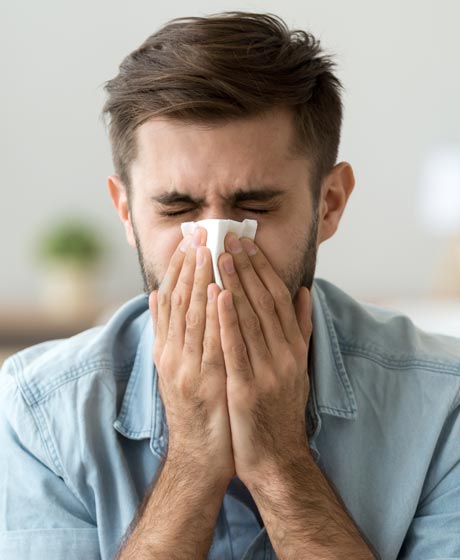
Immune Support Case Study
One of my patient’s, Paul, was reluctant to seek care. He was not a fan of doctors of any kind. His girlfriend, who came to see me for support for fatigue and digestive imbalances, swayed him to come to see me for immunity issues that he had been struggling with for two years. Paul was suffering from chronic sinus infections and colds. Not a month went by that he didn’t have one or the other.
During his initial appointment, by muscle testing vials of foods, toxins, microbial imbalances, etc., I uncovered that he had food sensitivities to dairy and corn. He had these foods in some form in two or three meals per day.
His go-to snack was tortilla chips, and he ate a lot of cheese. I also uncovered a chemical sensitivity, post-virus vial, mycotoxin (or mold) vial tested as weakening him in his muscle test. Paul had recalled water damage in his apartment and a musty smell that seemed to correlate with the mycotoxin vial. I recommended refraining from eating peanuts, cashews, and tomato paste, because of the high levels of mycotoxins in these foods. Along with food recommendations, I told him to get the MSQPCR mold test for his apartment and an air filter.
I asked Paul if he had mononucleosis at any point in his life or the Ebstein Barr virus. Paul confirmed that he had mononucleosis at the age of 17 and had fatigue for three years after the initial infection. This correlated with the post virus vial in his test.
Paul was put on supplements to detoxify the chemicals, mycotoxins, and strengthen his immune system. He reported that the first two weeks of his protocol were challenging because of the many changes in his diet, but he also noticed an uptick in his energy.
During a four week follow up appointment, he mentioned that it was the longest time that he hadn’t had a cold or sinus infection in two years. Seven months later, he still hasn’t come down with a cold or a sinus infection. Paul is taking immune-supportive vitamins, minerals, and herbs and is sticking reasonably well to the food recommendations. He incorporated regular exercise into his daily routine, is getting more sleep, and is emotionally more balanced. During his last visit, he mentioned that he feels much stronger and able to handle stress much more than he has in years.
